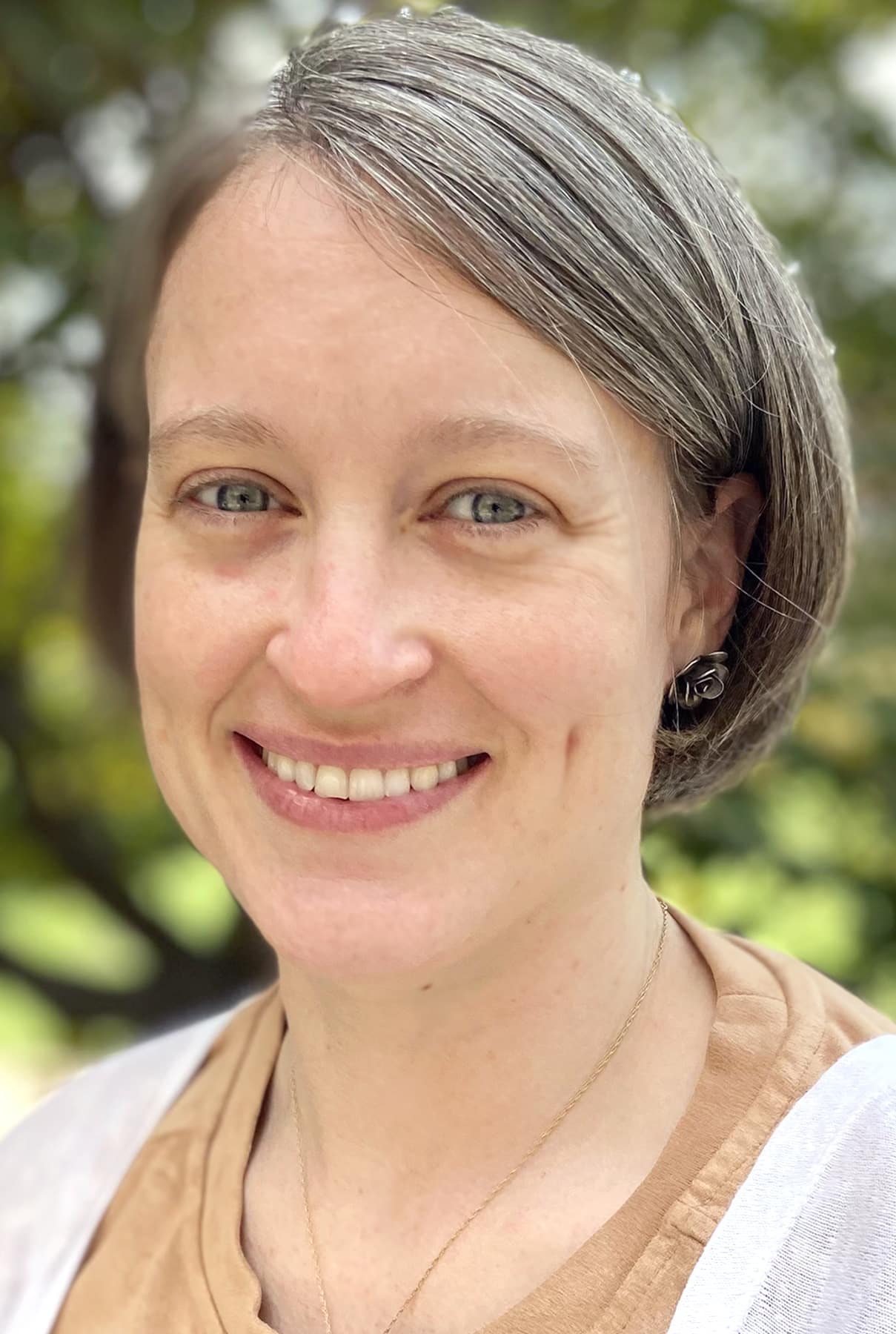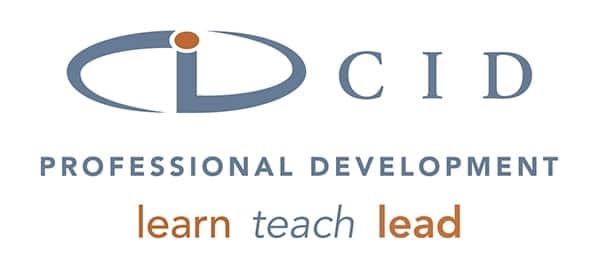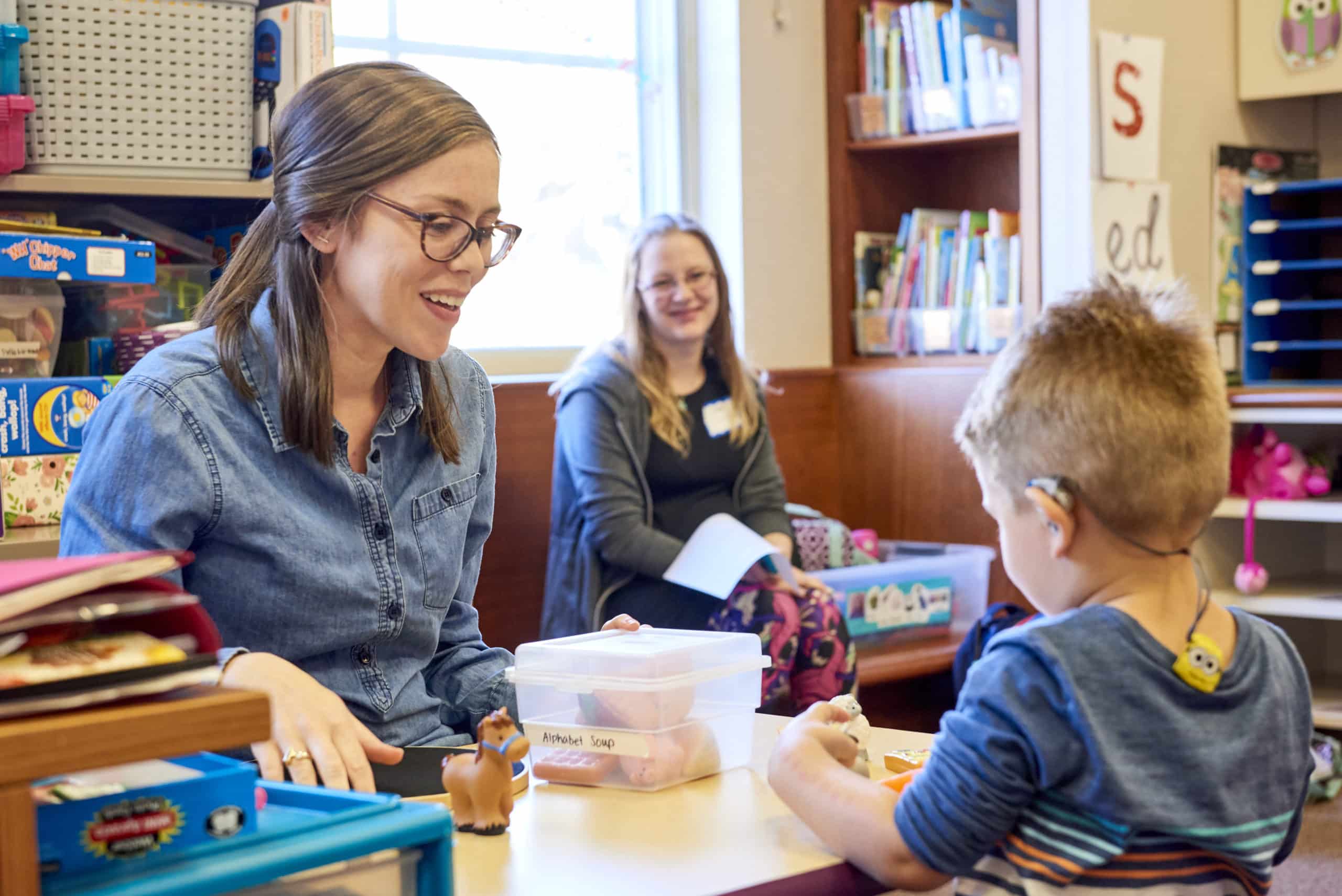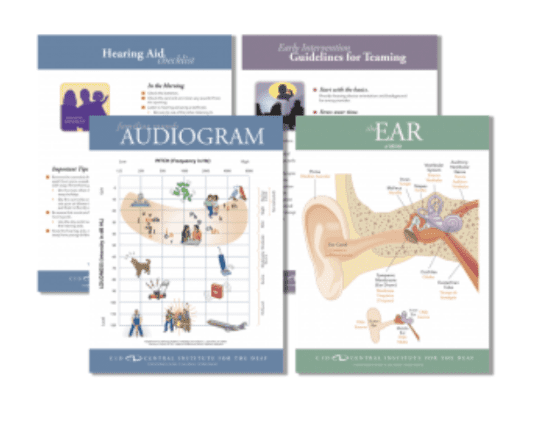My child has hearing loss. Don’t they only need speech therapy? What could occupational therapy do for them?
Great question! Occupational therapy (OT) is a confusing term for a simple and fun type of developmental support. In the early 1900s, healthcare providers noticed that the patients who showed the most improvements were the ones who participated in activities that occupied their time. It didn’t matter what the activity was as long as the activity was meaningful to the patient. And thus, the profession of occupational therapy was born.
Occupational therapists use occupations (meaningful activities) to help people participate fully in their lives. Therefore, it doesn’t matter what a person’s diagnosis is; what matters is what they want and need to do. For children, some meaningful occupations include:
- play
- learning self-care
- sports
- writing
- making arts and crafts
- interacting with friends
- building with blocks
- learning to sit at a table and listen to the teacher
- exploring in a sensory table
- playing dress up
- eating new foods… and many more!
OTs look at the whole child and support developmental areas, such as movement, sensation or cognition, that can make meaningful activities difficult.
Deafness and hearing loss can have complex causes. Some causes of deafness and hearing loss can affect more than just the ears. Genetic syndromes, illnesses and prematurity (to name a few) can affect multiple areas of the body. For instance, CMV (cytomegalovirus) is a virus that can cause hearing loss, but it can also lead to difficulty controlling impulsivity and attention. Prematurity may lead to hearing loss and cerebral palsy, which affects motor functioning. Usher syndrome is a genetic syndrome that causes hearing loss and balance difficulties.
Because of the many causes of hearing loss and different areas of the body it can affect, occupational therapists are important members of a treatment team that can help look at your child as a whole person. Speech-language pathologists and teachers of the deaf are experts in listening and spoken language and are crucial to support you and your child’s development of communication. If your child, however, has other areas of need, consider occupational therapy to help your child participate more fully in his life.

Sarah Cheatham Oberle is an occupational therapist. In addition to working at CID, she was also a Occupational Therapist at Washington University in St. Louis, Program in Occupational Therapy. Ms. Oberle’s professional interests include executive functioning skills of children and adolescents, including children with hearing loss.












